Internationale studiedag Regions in numbers: connecting diversity
Op dinsdag 10 mei 2022 organiseert Statistiek Vlaanderen een internationale studiedag over regionale statistieken. Regionale statistieken worden voor vele gebruikers van statistieken meer en meer belangrijk. Ook internationale statistiekinstellingen, zoals OECD, Eurostat en de UN, hebben steeds meer nood aan regionale statistieken om het nationale plaatje aan te vullen. Statistieken per land zijn immers niet steeds fijnmazig genoeg om een accuraat beeld te krijgen en om de politieke realiteit van bevoegdheidsverdelingen binnen een federale staat te ondersteunen. Anderzijds kampen regionale statistiekinstellingen met een reeks van uitdagingen om aan kwaliteitsvolle statistiekontwikkeling te doen. De studiedag zal een breed scala van onderwerpen behandelen.

Programma
In de voormiddag wijzen enkele sprekers op het belang van regionale statistieken als aanvulling op nationale gegevens. Het Belgische Interfederaal Instituut voor de Statistiek bestaat bijna 6 jaar, tijd om naar de verwezenlijkingen en de uitdagingen te kijken.
Download hieronder alle presentaties of neem een kijkje bij de impressies of bekijk de opnames op ons Youtube kanaal(opent in nieuw venster).
De dag wordt in goede banen geleid door Karolien Weekers
| 09:30 | Ontvangst met koffie |
| 10:30 | Introductie door Roeland Beerten(PDF bestand opent in nieuw venster), hoofdstatisticus van de Vlaamse overheid |
| 10:45 | Paul Schreyer, Hoofdstatisticus van de OESO en directeur van het Directoraat Statistiek en Data “More granular, more timely: the new statistical landscape(PDF bestand opent in nieuw venster)” |
| 11:30 | Roeland Beerten, Hoofdstatisticus Vlaamse overheid en voorzitter van het Interfederaal Instituut voor de Statistiek “6 jaar IIS: verwezenlijkingen en uitdagingen(PDF bestand opent in nieuw venster)” |
| 12:00 | Broodjeslunch |
| 13:30 | Parrallel sessies Tijdens twee parallelsessies worden regionale statistieken vanuit verschillende invalshoeken behandeld. Sessie 1. Regional Data: working together “Samenwerken met andere regionale en nationale statistiekinstellingen om kwaliteitsvolle regionale statistieken te produceren, enkele voorbeelden.” Alastair McAlpine, Chief Statistician Scottish Government (Interim): A nation within a nation: producing statistics for Scotland within the UK(PDF bestand opent in nieuw venster) Johan Van der Valk, coördinator Cross-Border Statistics (CBS) & Wolfgang Seifert, onderzoeker Information und Technik-Nordrhein-Westfalen (IT.NRW): Labour Markets in the border regions of the Netherlands and Germany(PDF bestand opent in nieuw venster) Bart Delbeke, onderzoeker Nationale Bank van België en van Statistiek Vlaanderen: Regional distribution of Belgian imports and exports of goods and services(PDF bestand opent in nieuw venster) Lisa Van Landschoot, demograaf Statistiek Vlaanderen: Interregional cooperation for official demographic statistics(PDF bestand opent in nieuw venster)
Sessie 2. Regional data in an international context “Samenwerken om internationale instellingen, zoals de VN, OESO of Eurostat, te ondersteunen bij het aanmaken van regionale en nationale statistieken.” Xavier Cuadras Morató, directeur van de Catalaanse Statistiek Dienst (IDESCAT): The working group of regional institutes for the production of the regional SDG indicators in Spain. Haritz Olaeta Goiriena, Basque Institute of Statistics (EUSTAT): Working Group of regional institutes for the production of the regional SDG indicators in Spain(PDF bestand opent in nieuw venster) Rudy Vannevel, onderzoeker Vlaamse Milieumaatschappij (VMM): Improving international water statistics(PDF bestand opent in nieuw venster) Isabelle Erauw, Adviseur Strategische beleidsondersteuning departement Onderwijs & Vorming: The process to get the International statistics about education(PDF bestand opent in nieuw venster) Jean-Maurice Frère, Federaal Planbureau. Indicators of sustainable development(PDF bestand opent in nieuw venster) |
| 15:30 | Netwerkreceptie met postersessies van IIS-partnerorganisaties |
| 17:00 | Einde |
Impressies van de studiedag
Bio Roeland Beerten
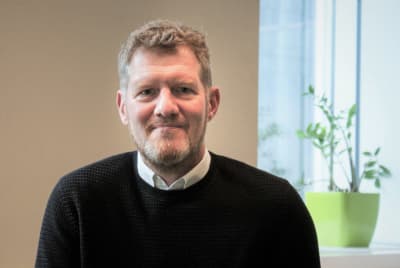
Roeland Beerten is hoofdstatisticus voor de Vlaamse overheid. Hij is verantwoordelijk voor het uitvoeren van het openbare statistiekbeleid zoals vervat in de Vlaamse en internationale regelgeving, met het doel om onpartijdige openbare statistieken van hoge kwaliteit ter beschikking te stellen aan een breed gebruikersveld. Voor zijn start bij de Vlaamse overheid werkte Roeland 20 jaar in het Verenigd Koninkrijk, eerst bij het Office for National Statistics, waar hij een aantal survey- en censusprogramma’s leidde, en nadien bij de Royal Statistical Society, waar hij als directeur verantwoordelijk was voor openbaar statistiekbeleid, onderwijs en public relations. Hij studeerde sociologie en sociale onderzoeksmethoden aan de KU Leuven en de KU Brussel, en volgde een aantal managementopleidingen aan de Ashridge Hult Business School.
Bio Paul Schreyer
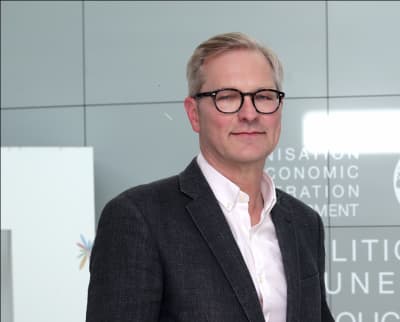
Paul Schreyer was nominated Chief Statistician of the OECD and Director of the Statistics and Data Directorate in 2020. He joined the Organisation in 1988 and held various positions in the (then) Directorates for Science Technology and Industry, Environment and Statistics. Before joining the OECD, he was a research fellow at the IFO Institute for Economic Research in Munich, Germany and Assistant Professor at the University of Innsbruck, Austria. Paul Schreyer holds a Ph.D. in economics. His personal research areas include national accounts, the measurement of capital, productivity, welfare, non-market activities and prices. He is the author of several OECD Manuals and has a record of publications in international journals and books. In 2008-09, he was rapporteur in the Stiglitz-Sen-Fitoussi Commission on the Measurement of Economic Performance and Social Progress.
Bio Bart Delbeke
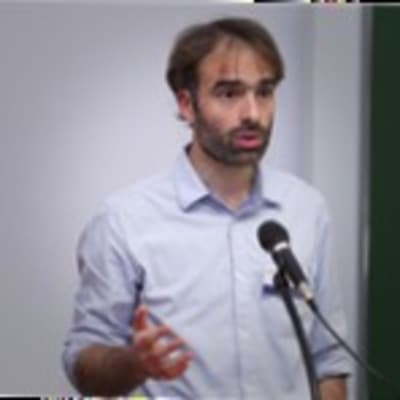
Bart Delbeke (°1978) werkte jarenlang als onderzoeker voor de Universiteit Antwerpen op verscheidene thema’s, zoals arbeidsmarkt en discriminatie, co-housing en energiearmoede. Sinds 2019 is hij actief bij Statistiek Vlaanderen waar hij de in- en uitvoer van goederen en diensten, alsook de inkomsten en uitgaven van politie- en brandweerzones opvolgt.
Bio Haritz Olaeta Goiriena

Haritz Olaeta Goiriena has a degree in Economics (Maths Economics) in the University of the Basque Country and a Msc and a Phd in Statistics in the University of Bristol (UK). Over 20 years of experience in official statistics in different fields in the Statistical Office of the Basque Country (Spain). As methodologist worked in Small Area Estimation Modelling and Seasonal Adjustment. Then he moved to Quarterly National Accounts. For the last few years he coordinates the Short Term Business Statistics at Eustat and the SDG statistical indicator system for the Basque Country in coordination with most of the regional statistical offices in Spain.
Bio Isabelle Erauw
Isabelle Erauw is adviseur binnen de afdeling Strategische Beleidsondersteuning van het departement Onderwijs & Vorming. Ze houdt zich daar o.a. bezig met (internationale) onderwijsindicatoren en is in die hoedanigheid betrokken bij de samenwerkingsverbanden met internationale instellingen als EUROSTAT, OESO en UNESCO
Bio Jean-Maurice Frère

Jean-Maurice Frère has worked as an analyst in the Task Force Sustainable Development of the Federal Planning Bureau (FPB) since 1998. Prior he worked at KU Leuven for HIVA- Research Institute for Work and Society. He holds two master’s degrees (sociology, quantitative analysis in the social sciences), a bachelor’s degree in philosophy and a post university degree certificate in international relations. At the FPB he contributes to the reporting on Sustainable Development Indicators and to the analyses, evaluations, and scenarios of the federal reports on Sustainable Development, where he primarily focuses on poverty and social inclusion. Also, he has conducted research on the current and prospective evolution of the risk of poverty or social exclusion, on the ecological and socioeconomic impact of the low-carbon transition and on the monitoring of mental health issues and energy poverty. He is a member of the working group ‘Social indicators’ (FPS Social Security), the working group ‘SILC & administrative data‘ (High Council for Statistics) and the federal poverty network of civil servants (PPS Social Integration). He was a Belgian delegate at the Indicators Sub-group of the Social Protection Committee (2002-2016) and since 2021 at the Inter-Agency and Expert Group on Disaster-related Statistics of the UN Statistical Commission.
Bio Johan van der Valk
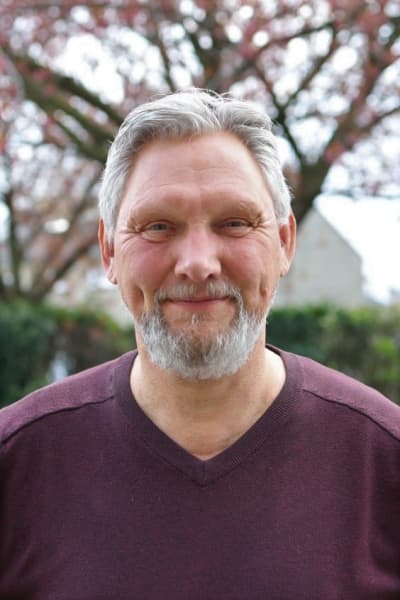
Having worked almost 30 years for Statistics Netherlands , Johan van der Valk is currently developing cross-border statistics. From 2009 to 2013 he was a Seconded National Expert at the Labour Market unit of Eurostat. He is now leading projects to implement the production of cross-border labour market information for the Dutch border regions. In addition, he is involved in the process of building evidence for EU border regions. In this context he was leading the consortium of statistical offices that carried out the pilot project to develop methodology cross-border information as mentioned under the action point 3.10.1 on building evidence in the EC communication ‘Boosting growth and cohesion in EU border regions’.
Bio Karolien Weekers

Karolien Weekers is doctor in de politieke wetenschappen en werkt reeds 12 jaar voor de Vlaamse overheid: eerst bij de studiedienst van de Vlaamse regering en daarna bij de Vlaamse Statistische Autoriteit. Als adviseur openbare statistiek, is ze samen met haar collega Jo, verantwoordelijke voor de productie en verspreiding van de Vlaamse openbare statistieken. Inhoudelijk werkt Karolien vooral rond de thema’s toerisme, economie en onderwijs. Vanaf 2020 neemt ze ook de rol op van gastvrouw bij de maandelijkse seminaries van Statistiek Vlaanderen.
Bio Lisa Van Landschoot
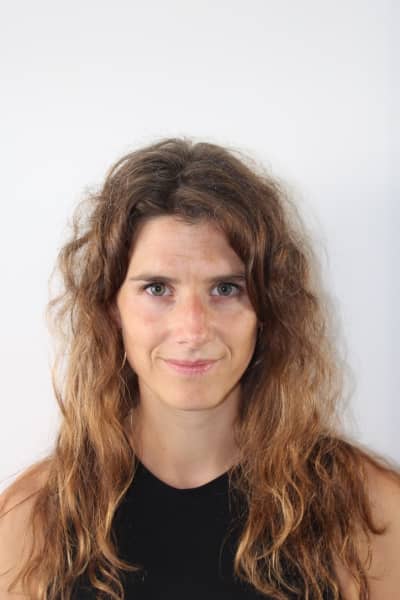
Lisa Van Landschoot is a demographic analyst at the Flemish Statistical Authority (VSA). Her main activities include the analysis, statistical mapping and forecasting of the population of the Flemish Region. Before, Lisa worked at the Vrije Universiteit Brussel (VUB) as a postdoctoral researcher. She obtained a PhD in the field of Sociology (VUB).
Bio Roger Halliday

Roger Halliday is the Scottish Government’s Chief Statistician.He started as Chief Statistician in November 2011 worked as the Chief Data Officer in Scottish Government up to March 2020 when he took a role leading the Government’s Covid Analysis Team. He qualified with a degree in statistics in 1993 from St. Andrews University and joined the Government fast stream as an assistant statistician. He worked for various UK Government Departments and at the Scottish Government in a number of statistical and policy making roles. He currently leads Research Data Scotland, which was established in 2020 to enable innovation in the public good through access and linkage of data around people, places and businesses. He became an honorary Professor at the University of Glasgow in 2019.
Bio Rudy Vannevel

Rudy Vannevel graduated in biology (Ghent University, 1984) and was involved in the water domain ever since. At the Flanders Environment Agency, he started working on biological water quality assessments in the early 1990s. Later on, he worked on integrated water management and the development of water quality plans. For about 20 years, he is the contact for water data reporting to the international authorities.
Bio Xavier Cuadras-Morató

Xavier Cuadras-Morató is the Director of the Statistical Institute of Catalonia (IDESCAT) since 2019. He is also Associate Professor in the Department of Economics and Business at the Universitat Pompeu Fabra (UPF) in Barcelona (currently on leave). He was Director of the International Business School of the Universitat Pompeu Fabra (ESCI-UPF) from 2005 to 2019. He is also Affiliated Professor in the Barcelona School of Economics (BSE). He received a Ph. D. in Economics from the University of York (United Kingdom). He has held visiting positions in the University of Pennsylvania (USA) and University of Rochester (USA). He has published research papers in international journals on diverse subjects (monetary theory and history, health economics, education and the labour market, and political economy). His most recent research is on the economic consequences of the political conflict between Catalonia and Spain on which he has edited the book Catalonia: A New Independent State in Europe? (A debate on secession within the European Union) (Routledge, 2016) and written the book Political independence and the monetary question (A comparison of the cases of Quebec, Scotland and Catalonia) (2019).
